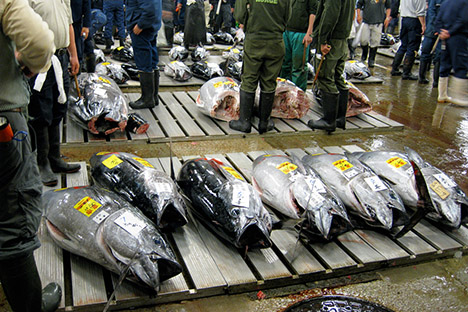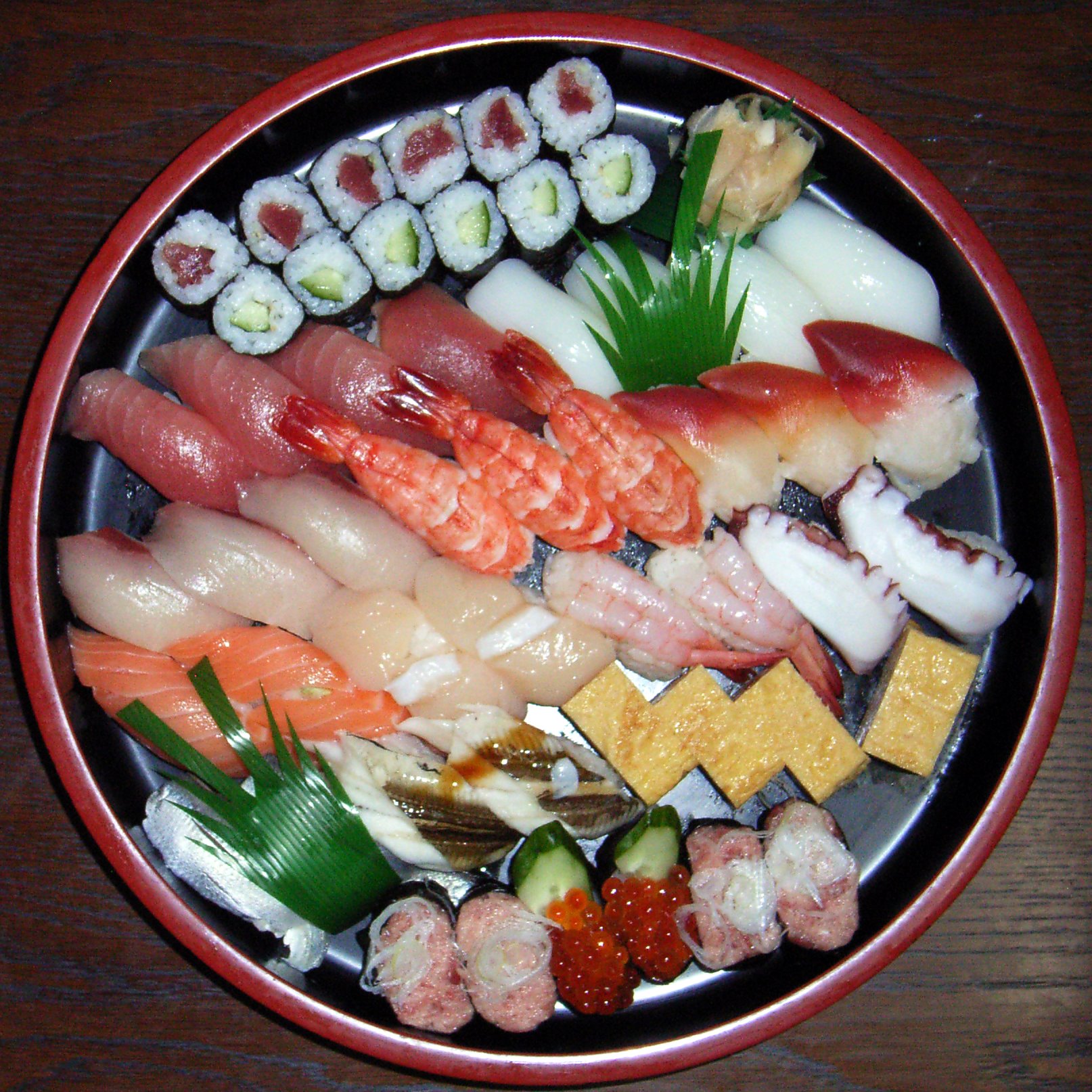
Despite Southern Bluefin Tuna (Thunnus maccoyii) being endangered, the Australian Government continues its weak policy of appeasing the Japanese - the main poachers and customers of Bluefin Tuna.
The Convention on International Trade in Endangered Species of Wild Fauna and Flora is abbreviated ‘CITES’. The Australian federal Department of the Environment, Water, Heritage and the Arts. Government is a signatory to CITES and since and CITES international trade regulations have been enforceable under Australian law since 27 October 1976. Every signatory to CITES is required to designate a management authority. In Australia this is effectively the Threatened Species Scientific Committee.
On 7 September 2005, Australia’s Threatened Species Scientific Committee concluded that the Southern Bluefin Tuna (SBT)... “continues to be overfished despite the international management arrangements which have been formally in place since 1994.”
“The parental biomass is currently in the order of 3 to 14% of that in 1960 (its unfished size). In addition, BRS has classified SBT as being 'overfished' every year since the first BRS fishery status reports were first produced in 1992.
“Stock assessment models have shown a significant historic decline in the biomass of SBT. The mature population of SBT has declined significantly over its last three generations (since the 1980s) and is currently at a very low level.
Therefore, the species is eligible for listing as endangered under Criterion 1.”
The Threatened Species Scientific Committee recommended this to the Australian Government.
Australia’s then Minister for the Environment and Heritage, Senator the Hon Ian Campbell decided against listing the species under the EPBC Act…“as it may weaken Australia's ability to influence both the management of the global fishing effort and the global conservation of the species.”
SOURCE.
CITES COP15 DRAFT RESOLUTION March 2010 on Bluefin Tuna (Thunnus thynnus)
* Fishing capacity is at least double that needed to catch the current legal quota and that recent estimated catches have been four times greater than the maximum catch recommended by scientists to prevent the collapse of the population.
* A 78.4% cut would be needed in the fishing effort by the fleet targeting East Atlantic and Mediterranean Atlantic Bluefin Tuna
* East Atlantic and Mediterranean stock status, fell by 80% in the southern Iberian
Peninsula between 2000 and 2006
* The loss of groups of older fish in the shoals present in the Eastern Atlantic and
Mediterranean fishery and the drastic fall in the reproductive biomass, which is currently only 36% of the level that existed at the beginning of the 1970s, are clear symptoms that this population is in imminent danger of collapse.
CITES has recommended to:
a) establish a science-based recovery plan for the East Atlantic and Mediterranean stock
... and to ban industrial fishing – particularly purse seining- during the entire spawning season (May, June and July)
b) establish immediately an interim suspension of the East Atlantic and Mediterranean bluefin tuna fishery
c) permit resumption of fishing activities only according to the strict science-based ICCAT population-recovery plan
d) set up protection zones for spawning grounds in the Mediterranean, including the waters within the Balearic Sea, Central Mediterranean, and Levant Sea, during the spawning season
The Japanese, consumers of 80% of the world's Bluefin, have rejected the ban and the recommendations, while Australia has not accepted the ban. Australia's federal minister for the environment etc, Peter Garrett, has refused to join the United States and the European Union in seeking a trade ban.
READ: 'Garrett rejects bluefin trade ban' in the Sydney Morning Herald, 13-Mar-2010.

Call to Boycott Japanese Cuisine:
Japanese cuisine includes sashimi, which typically is Bluefin Tuna. Bluefin is the raw fish used in Japanese 'maguro', and 'o-toro' dishes and in many sushi combinations.
The Australian government may pasty to the Japanese, but that doesn't stop ethically driven citizens boycotting Japanese restaurants and sushi shops, which sell raw fish which is typically the critically endangered Bluefin Tuna.
It's time to send a blunt message to the Japanese that their fettish for Bluefin is backward! Some are labelling the plight of Bluefin SUSHICIDE.

Add comment